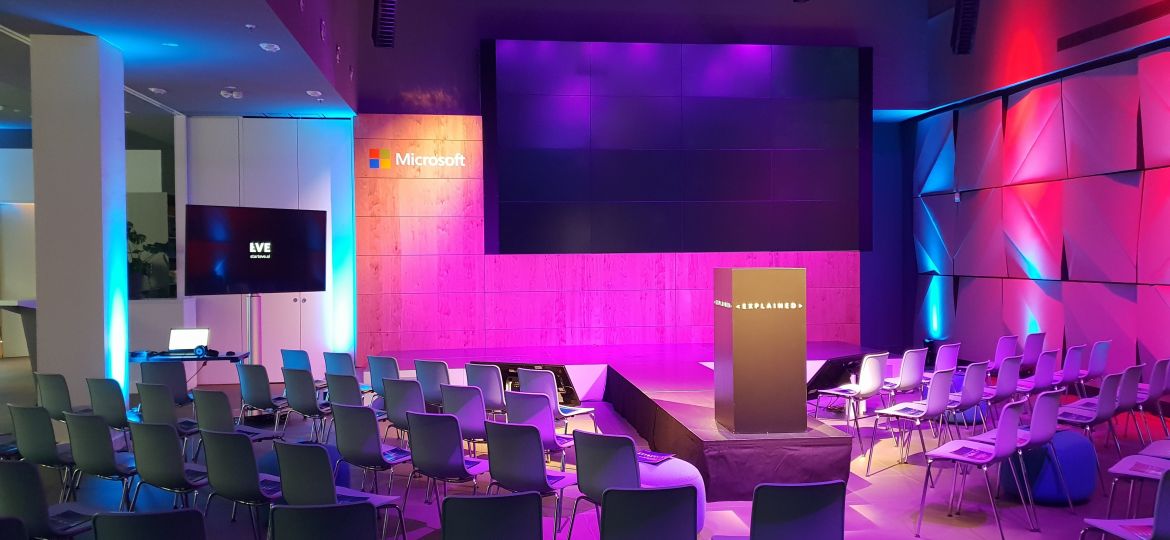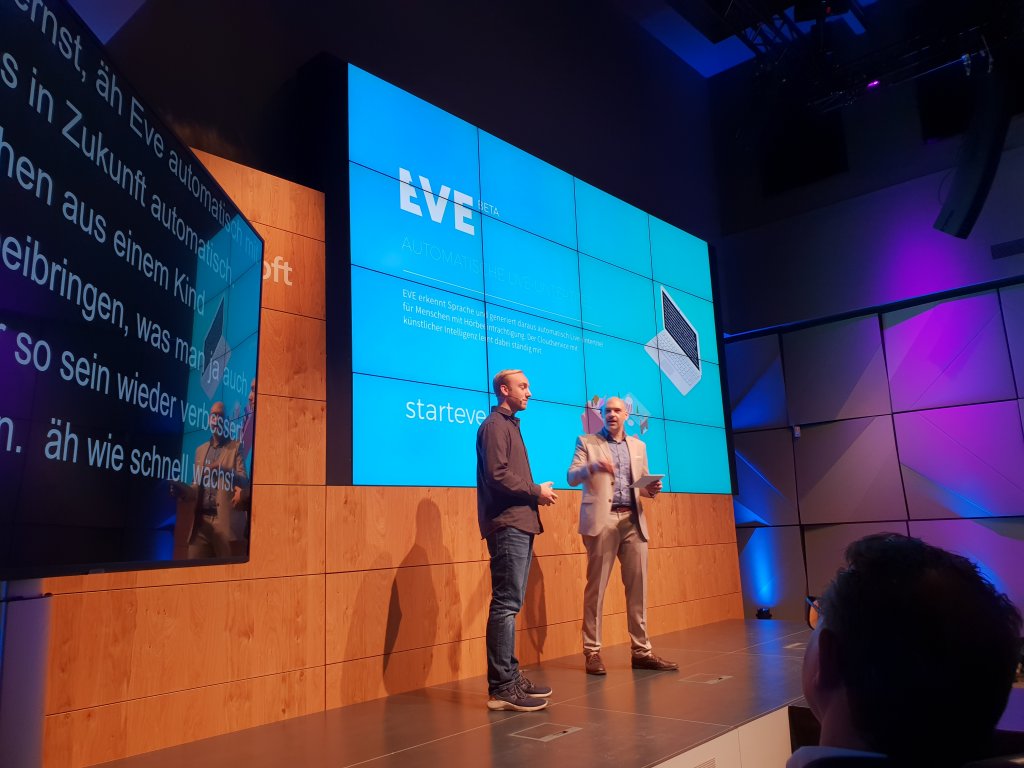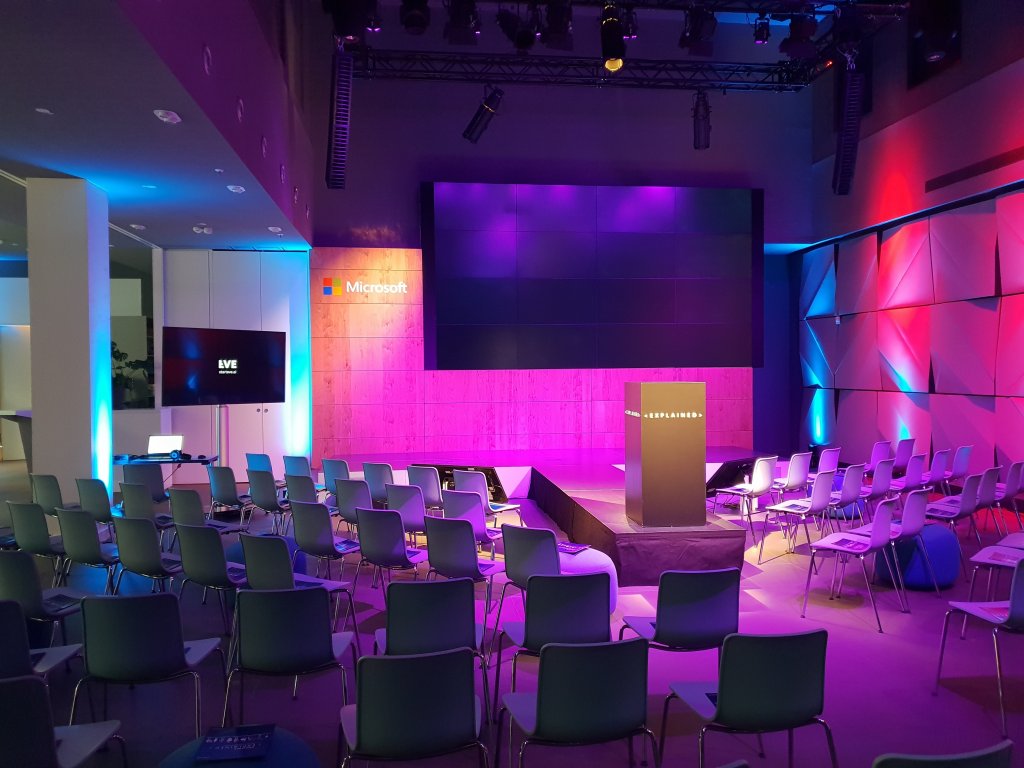
At the digital conference Microsoft Explained in Berlin, we were able to test EVE live for the first time under real conditions. Surprise at first: Microsoft found the product so exciting that our colleague Maxi Krause was asked to present it on stage, as the theme of the event was “Artificial Intelligence”. The presenter Daniel Finger asked him a few questions:
The main idea behind EVE is to actively involve people with hearing impairments at events. Until now, this has been very costly. A stenographer was needed on site to provide subtitles in real time. They converted the spoken word into text.
According to a report by the World Health Organization (WHO), there are 466 million people with hearing impairments in the world (as of 2018). Many of them rely on captions to understand anything at all. In sad contrast, far too few contributions are subtitled on the web, on TV and at events.
We have developed EVE so that such a service can be available at as many events as possible. EVE uses AI and Microsoft’s Cognitive Services to generate subtitles, which we then see live on a monitor or via a link on our own device. You could also open this view on your cell phone, fully responsive, directly in the browser. All in real time and much cheaper.
I followed the subtitles during the keynote. In my opinion, EVE today has achieved about 90% of where we want to go. But: EVE is still in the making. What we see here today is just a developer release. It is far from perfect and is still being optimized.
You also need to know for the assessment: It is possible to interpose a human proofreader. This person checks the recognized sentences and corrects minor errors such as technical terms. Our service improves spelling and punctuation itself in real time. By the way: The proofreader could also be located anywhere in the world. All it needs is a browser and the Internet.

EVE was in continuous operation for 8 hours and Maxi spent half an hour explaining to the audience what our service is all about. (Source: Filmgsindl GmbH)
The service automatically learns every time a proofreader corrects a word. For example, if the word “iced tea” is corrected five times in “Iot” (Internet of things), the EVE remembers the correction. Next time she uses the right word. By default, such experiences initially only remain within the customer account. However, the user can allow EVE to share what it has learned with others. These are very important data protection issues in the age of AI.
The greatest difficulties arise when people talk at the same time. But even we would have difficulties understanding what is being said. Accents are not easy either, for example an American giving a speech in German. Or a Munich resident with a Bavarian dialect. However, we can counteract this. In future, EVE can also be trained with language models. Customers can then ask their speaker to record 10 sentences on their cell phone and send them to EVE. This increases the word recognition rate enormously. It learns technical terms quite simply via a dictionary upload.
No, on the contrary! And that was very important to us right from the start! We license EVE to stenographers at a special price. They can use it to subtitle events without having to be on site themselves. They don’t have to travel as much. That lowers the prices. This means they can get clients who would otherwise not have been able to afford subtitles. So no jobs are lost, they become more digital and remote.
EVE is a project close to Tom Papadhimas’ and my heart and we believe that we can achieve a lot with it. And we still have a lot planned! This includes, for example, many new languages and live translation. We are also planning to output the text in different colors for each speaker using speaker recognition. In the long term, support for the HoloLens is also on the cards. Imagine being in a soccer stadium, putting on the HoloLens and seeing the live subtitles of the stadium announcer.
EVE is scheduled to go live in February 2019. Until then, we are gathering experience with selected test customers and developing the service further based on their feedback. Anyone who would like to test EVE in their environment or has ideas is welcome to contact contact us!
